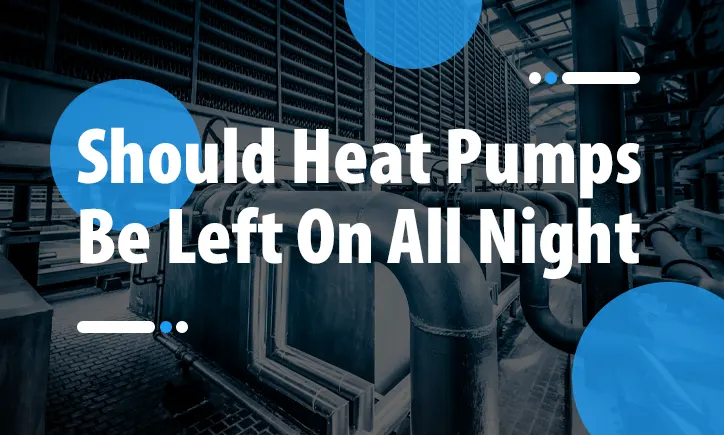Heat pumps are an increasingly popular energy-efficient alternative to traditional heating and cooling systems. Due to technological advancement, several questions come up regarding the most effective ways to use these systems. However, homeowners often wonder should heat pumps run all the time.
In this article, we will delve into the pros and cons of leaving your heat pump overnight, heat pump usage myths, and explore the various aspects that should be considered when deciding whether to leave them on all night.
Pros of Leaving Heat Pumps On All Night
- Controlled Temperature: One of the main benefits of leaving your heat pump on all night is that it allows for consistent temperature control throughout the night. This can be particularly beneficial during the winter months when temperatures can drop significantly at night. By leaving your heat pump on, you can ensure that your home remains at a comfortable temperature and that you won’t wake up to a cold house in the morning.
- Improved Indoor Air Quality: Another advantage of leaving your heat pump on all night is that it can help to improve indoor air quality. Heat pumps are designed to circulate air within your home which can help to remove pollutants and allergens from the air. By leaving your heat pump on all night, you can ensure that the air in your home remains fresh and clean.
Cons of Leaving Heat Pumps On All Night
- High Energy Consumption: One of the main concerns with leaving your heat pump on all night is the potential for energy waste. Heat pumps consume energy to maintain a consistent temperature, and leaving them on all night can result in a higher energy bill. However, this can be mitigated by setting your heat pump to a lower temperature at night or using a programmable thermostat to automatically adjust the temperature based on your schedule.
- Noisy: Another potential issue with leaving your heat pump on all night is the noise. Heat pumps can be noisy, and if you’re a light sleeper, the constant hum of the unit may be disruptive to your sleep. However, many modern heat pumps are designed to operate quietly, so this may not be a significant issue for all homeowners.
Optimal Temperature Settings for Efficiency
To maximize energy efficiency, it’s essential to set the temperature at an optimal level. Lowering the thermostat slightly at night can contribute to energy savings without compromising comfort. Finding the right balance is key to achieving both efficiency and a cozy home.
Maintenance Practices for Heat Pumps
Regular maintenance is vital for the efficient functioning of heat pumps. Simple tasks like cleaning filters and checking for debris can ensure the system operates optimally, reducing the risk of breakdowns and increasing its lifespan.
Environmental Impact
Compared to traditional heating methods, heat pumps have a lower environmental impact. They use less energy, emit fewer greenhouse gases, and contribute to a greener and more sustainable home heating solution.
Cost Considerations
While the initial investment in a heat pump system may seem high, the long-term savings in energy costs often outweigh the upfront expenses. Evaluating the overall cost-effectiveness involves considering factors like utility bills, maintenance, and system longevity.
Technological Advances in Heat Pump Systems
Advancements in heat pump technology include smart features and automation, allowing users to optimize usage for energy efficiency. These innovations contribute to a more user-friendly and efficient heating system.
Addressing Concerns About Noise
One common concern about leaving heat pumps on overnight is the noise they produce. However, modern systems are designed with noise reduction features, ensuring a quiet and comfortable environment for sleep.
Sleeping Comfort and Heat Pumps
Many users report improved sleeping comfort with heat pumps. The consistent temperature control and air quality benefits contribute to a more restful night’s sleep.
Safety Measures and Recommendations
To ensure the safe operation of heat pumps, following manufacturer recommendations and regular maintenance guidelines is crucial. This includes keeping the area around the unit clear and addressing any issues promptly.
Impact on Indoor Air Quality
Heat pumps contribute to better indoor air quality by providing ventilation and filtration. This especially benefits individuals with respiratory conditions, creating a healthier living environment.
Expert Opinions
HVAC experts emphasize the efficiency and safety of leaving heat pumps on overnight. Industry recommendations align with the benefits of continuous operation, provided the system is well-maintained.
Conclusion
So, should heat pumps be left on all night? The answer depends on your personal preferences and circumstances. If you value consistent temperature control and improved air quality, leaving your heat pump on may be a good option for you. Suppose you’re concerned about energy waste or noise. In that case, you may consider alternative options like setting your heat pump to a lower temperature at night or using a programmable thermostat to adjust the temperature automatically.
As with any decision related to your home’s heating and cooling system, it’s important to weigh the pros and cons and choose the option that works best for you. So, here are the final thoughts on the question: Should we run heat pumps continuously? Leaving heat pump on all night can be a viable and energy-efficient option for maintaining a comfortable home environment.
Understanding the technology, addressing common concerns and following recommended practices ensure a positive experience with heat pump usage. If you want to get more information about maintenance tips and a heat pump guide, visit Air Perfection Ltd., which provides services from Duct systems to Hight-Wall United.






